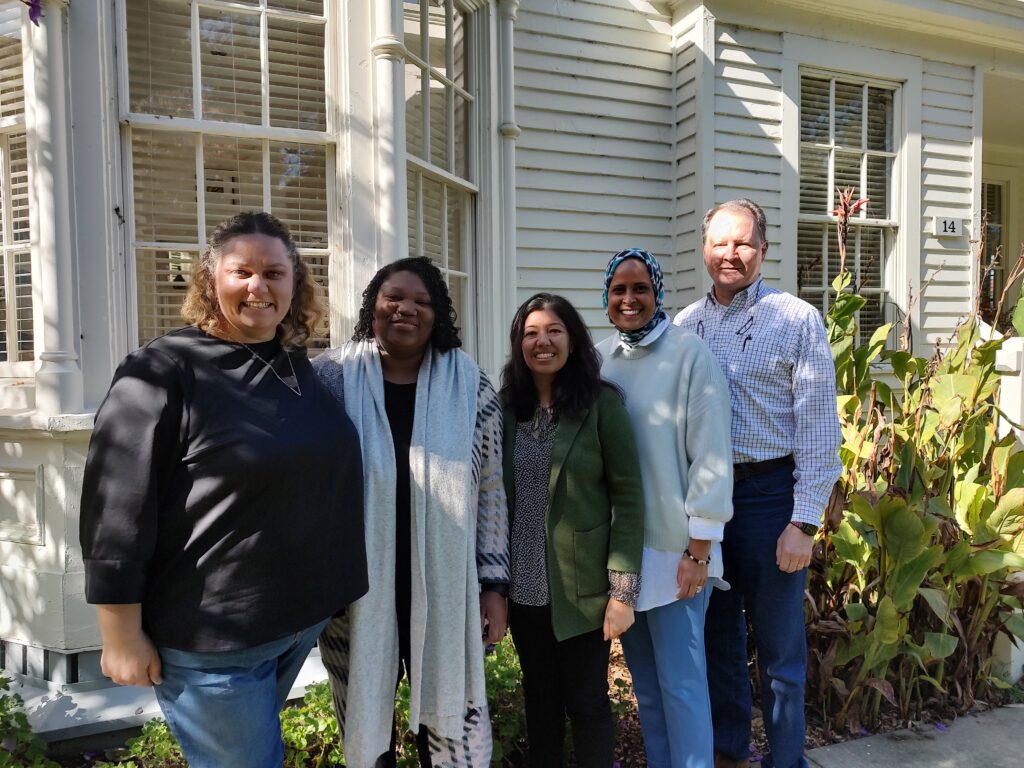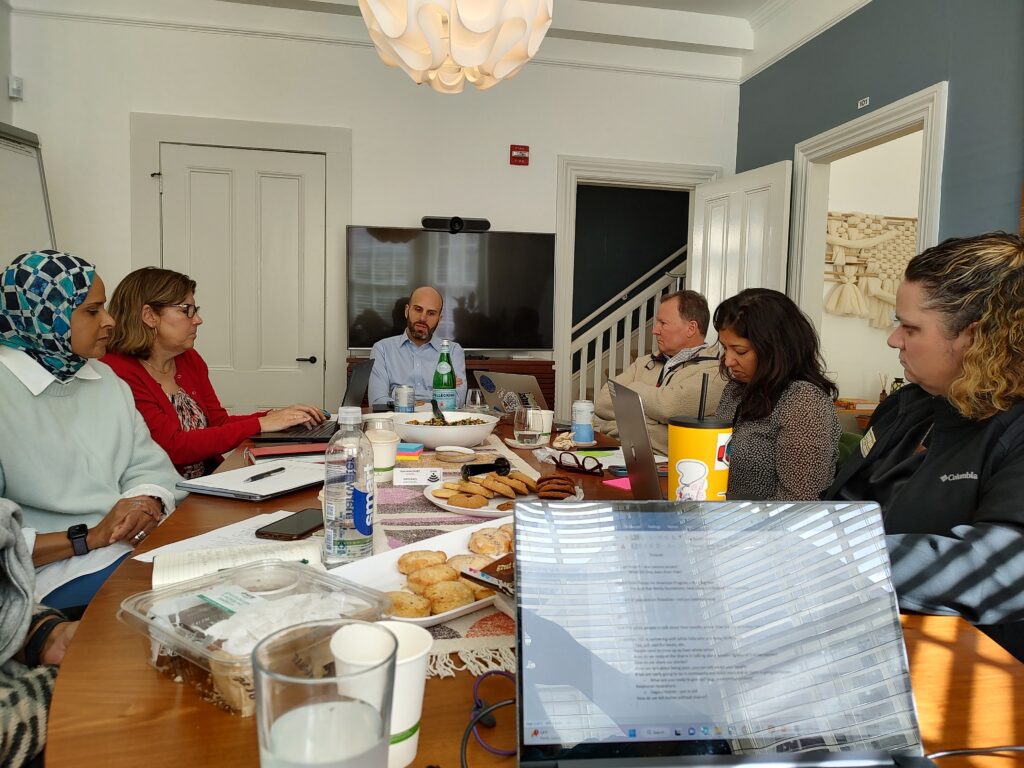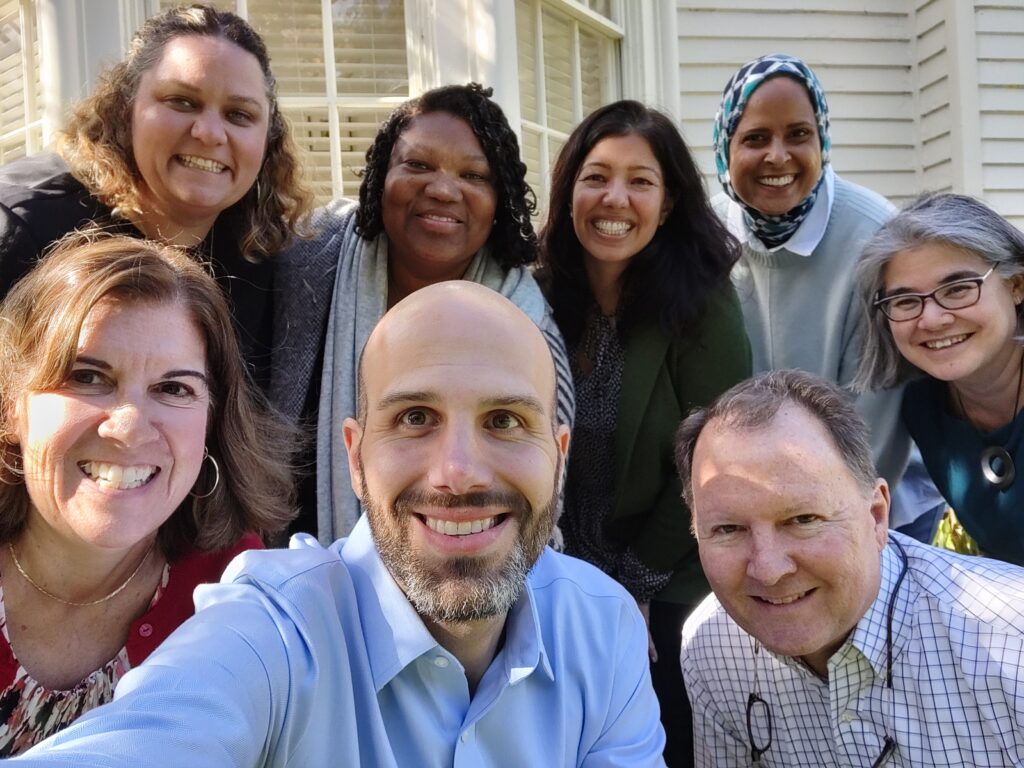Partnering with Purpose and Possibility: Asking the Bold Questions

A retreat to kick off the work of NCFP’s newest class of Fellows raised a number of questions for NCFP and its Fellows to wrestle with.
How far can we push you?
With that question, raised by a Fellow in the first few minutes of our formal launch meeting for the new class of fellows of the National Center for Family Philanthropy (NCFP), it became clear we had selected the right group of leaders to help us move the organization and the field of family philanthropy forward. As NCFP centers the principles of effective family philanthropy and reflects on how to embed equity, accountability, reflection and learning, and healthy relationships throughout our work, we know that we will only be successful as part of a community—a community that includes partners who are willing to push us and to co-create new approaches, thought leadership, and tools to support family philanthropists.
In February, our newest Fellows and NCFP staff convened in San Francisco for a retreat and the official launch of their fellowship. The purpose of this convening was to begin to build community with each other, review each Fellow’s proposed workplan for the next two years, ground the Fellows in NCFP priorities, and begin to identify points of intersection and cross-over between the Fellows’ work and NCFP’s programs.
Throughout our discussions, the Fellows pushed us to think deeper and harder, and to ensure that throughout the work we do we keep community voices and concerns centered. They challenged us to keep asking questions, and to continue to question old assumptions.

NCFP Fellows from L to R: Erin Borla, CC Gardner Gleser, Dimple Abichandani, Dilnaz Waraich, David Weitnauer
In a wide-ranging conversation, we began to outline some of the questions the Fellows and NCFP will take on in the coming year. We don’t expect to find all the answers but are excited to begin to tackle and hold these questions.
What are the roles of humility and vulnerability in philanthropy?
If families are to be in right relationship with their grantee partners, their communities, and indeed with other family members, how can they approach those relationships with authenticity, humility, and vulnerability? How can we, as a field get better about admitting to and learning from mistakes?
What is the role of family in family philanthropy?
Family relationships and engagement are at the center of what makes family philanthropy unique. Families seeking to practice effective philanthropy can both benefit from and potentially be hindered by those relationships; the work of navigating internal family dynamics can build strong relationship-building muscles that can benefit work with grantee partners. However, families cannot see their philanthropy solely as a vehicle for family engagement. Family togetherness isn’t a charitable purpose and should never overshadow the work of the philanthropy to make a difference in the broader world. At the same time, we can’t separate family from family philanthropy. Therefore, families must reflect on how to balance the internal focus on family engagement with the work of developing their philanthropic knowledge and building deep, trusting relationships with their grantee partners and communities.
How are we structuring conversations and opportunities to reach the broadest possible audience?

NCFP Fellows and staff at the 2023 Fellows Retreat
The Fellows challenged us to be intentional in how we use language in an effort to engage and inspire the broadest range of family philanthropy practitioners possible. This is a field prone to jargon that may not always resonate broadly. One fellow talked about being a goat—that is, an edge-walker—and the fact that you can’t change a system solely from the outside or the inside, but rather with a clear understanding and compassion for both sides of a discussion or divide. Implicit in this conversation is a challenge to NCFP to find ways to hold space for difficult conversations with a wide range of audiences where everyone can feel heard and included, and where people are provided the tools to make lasting and sustainable change. Similarly, it is also important for families to reflect upon their ability to walk the edges—within the family system and across complex issues and relationships.
How are we preparing the next generation of leaders?
The field of family philanthropy is undergoing a seismic shift in demographic representation. Wealth and control are transferring to younger generations at a rapid pace, yet it is unclear whether or not the emerging generation feels prepared to lead. Those of us in the field of family philanthropy—donors and partners alike—must reflect upon how we best prepare the next generation for leadership. What are the specific skills needed to navigate with empathy, accountability, and inclusion? How can people be in healthy and effective relationships with their family members, staff, and community and avoid leaning into corrosive power dynamics or exploitative practices? Fundamentally, families and their partners must explore how to ground family foundation leaders in their roles as stewards of the public trust.
How do we expand the conversation about equity?
The conversation on equity is complicated. It requires nuance. It also demands that we ask whose voices are missing? In pursuit of equitable philanthropic practices, how do we continue to expand the conversation on equity? How do families consider issues of religious pluralism, for example? How do we understand particular populations such as people who live in rural areas or Indigenous peoples who are often stereotyped in unfair ways? For NCFP, this means we need to make sure that our programming is both expansive in its framing and equity lenses, and also is reaching audiences who may not have previously undertaken significant equity work. For families, it requires a return to purpose and an exploration of what it means to learn from diverse communities and partners.
How can families grapple with questions of legacy—both the ways in which their wealth was generated, and the good they wish to do?
Philanthropic families are often rightly proud of the good they have accomplished through their giving but may not always be willing to examine how the wealth that made that giving possible was accumulated. These two things—giving and legacy—don’t have to be in tension, but it is imperative that families find ways to be honest about both.
As Far as Possible
In the coming months, we plan to share more information about the Fellows and their individual and joint work. At the moment, we are holding the questions they posed to us and the challenges they placed before us, because in answer to the question “how far can we push you?” our enthusiastic response was “as far as possible.”

The Fellows with NCFP staff, including Daria Teutonico, Nick Tedesco, and Miki Akimoto
